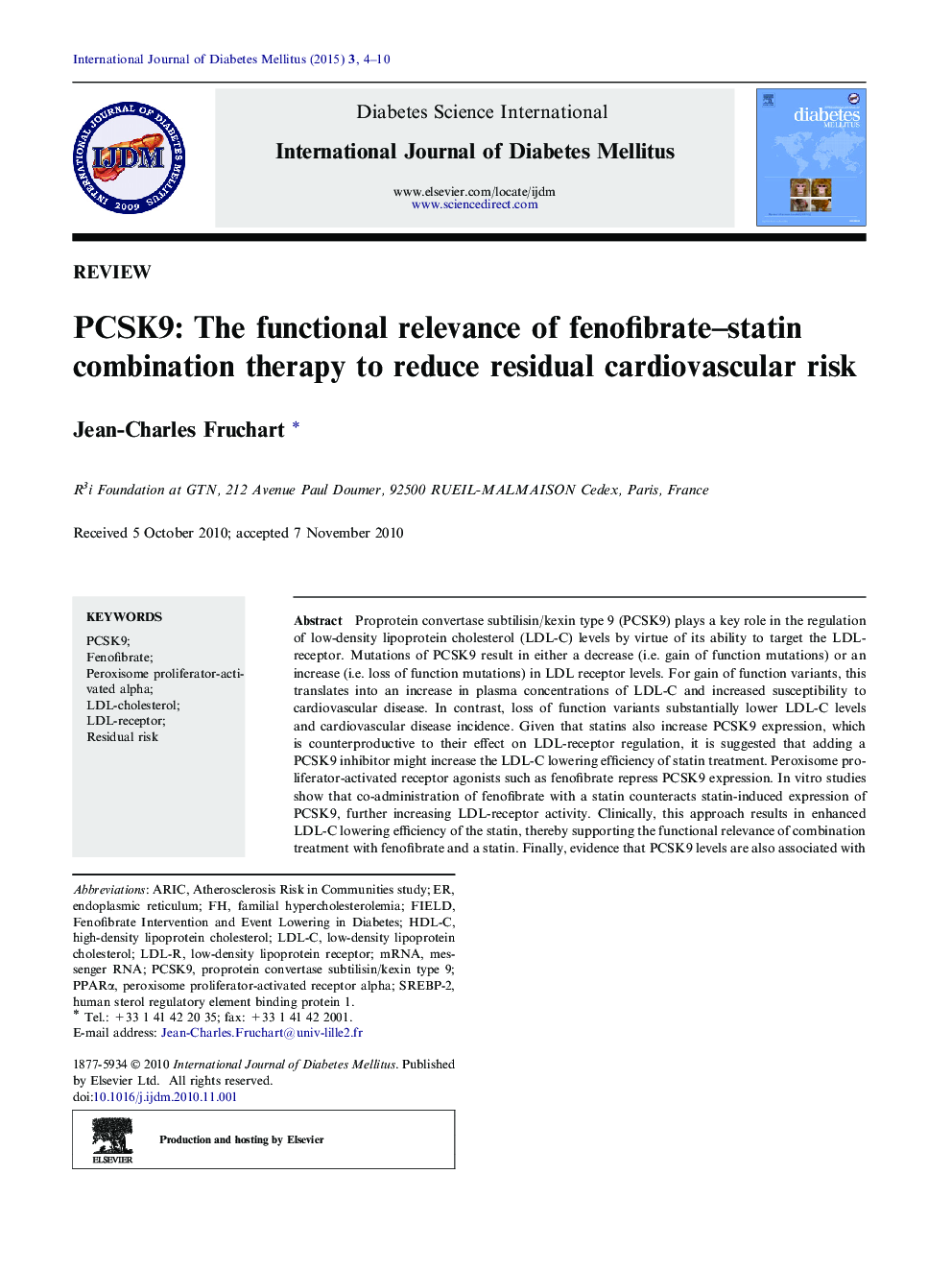| Article ID | Journal | Published Year | Pages | File Type |
|---|---|---|---|---|
| 3270388 | International Journal of Diabetes Mellitus | 2015 | 7 Pages |
Proprotein convertase subtilisin/kexin type 9 (PCSK9) plays a key role in the regulation of low-density lipoprotein cholesterol (LDL-C) levels by virtue of its ability to target the LDL-receptor. Mutations of PCSK9 result in either a decrease (i.e. gain of function mutations) or an increase (i.e. loss of function mutations) in LDL receptor levels. For gain of function variants, this translates into an increase in plasma concentrations of LDL-C and increased susceptibility to cardiovascular disease. In contrast, loss of function variants substantially lower LDL-C levels and cardiovascular disease incidence. Given that statins also increase PCSK9 expression, which is counterproductive to their effect on LDL-receptor regulation, it is suggested that adding a PCSK9 inhibitor might increase the LDL-C lowering efficiency of statin treatment. Peroxisome proliferator-activated receptor agonists such as fenofibrate repress PCSK9 expression. In vitro studies show that co-administration of fenofibrate with a statin counteracts statin-induced expression of PCSK9, further increasing LDL-receptor activity. Clinically, this approach results in enhanced LDL-C lowering efficiency of the statin, thereby supporting the functional relevance of combination treatment with fenofibrate and a statin. Finally, evidence that PCSK9 levels are also associated with changes in plasma levels of glucose, triglycerides and high-density lipoprotein cholesterol suggests that PCSK9 may be a potential target in patients with type 2 diabetes or metabolic syndrome. Such an approach could impact the substantial residual cardiovascular risk that exists in statin-treated patients.
